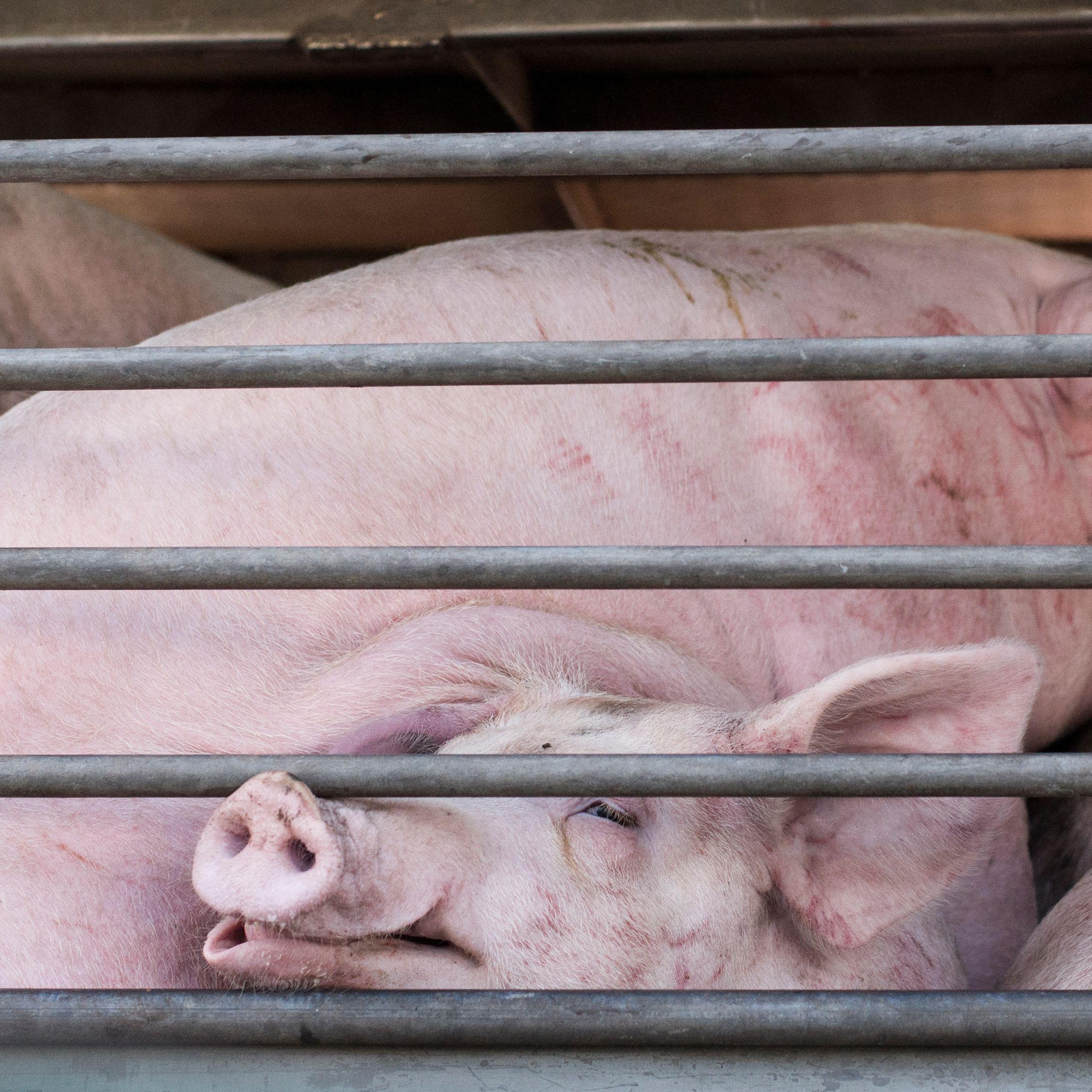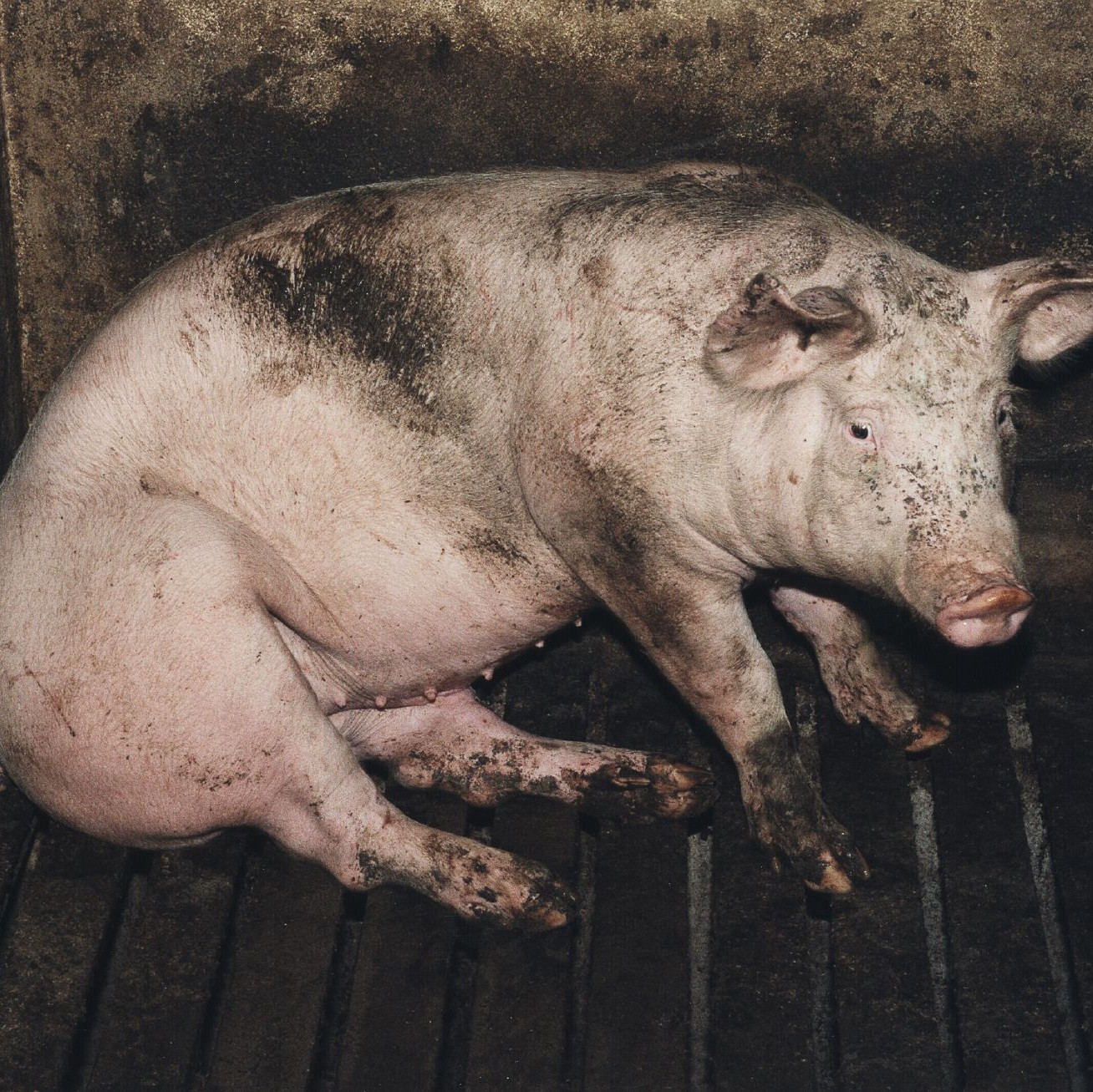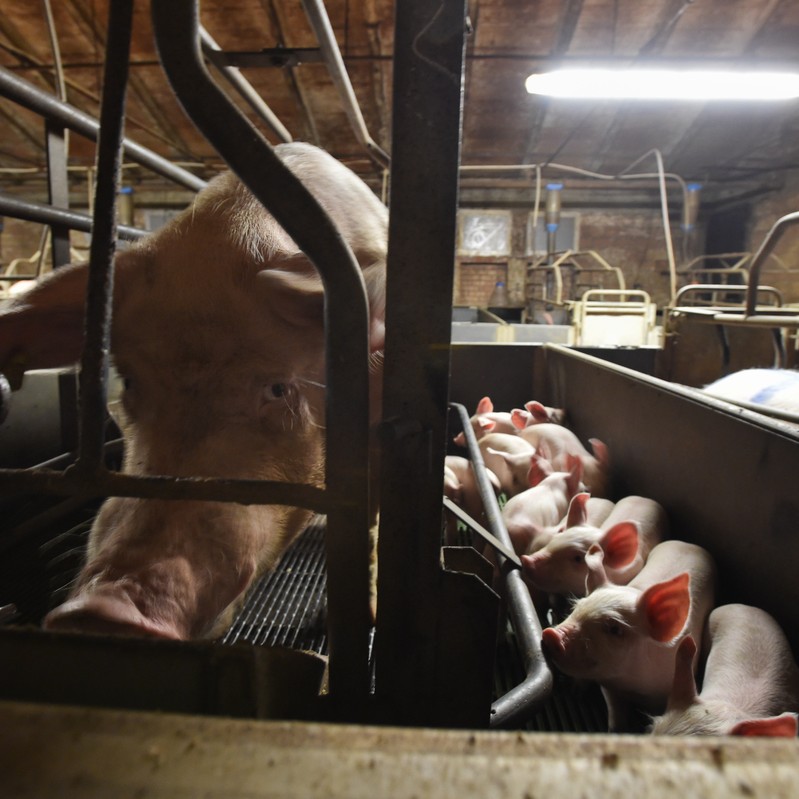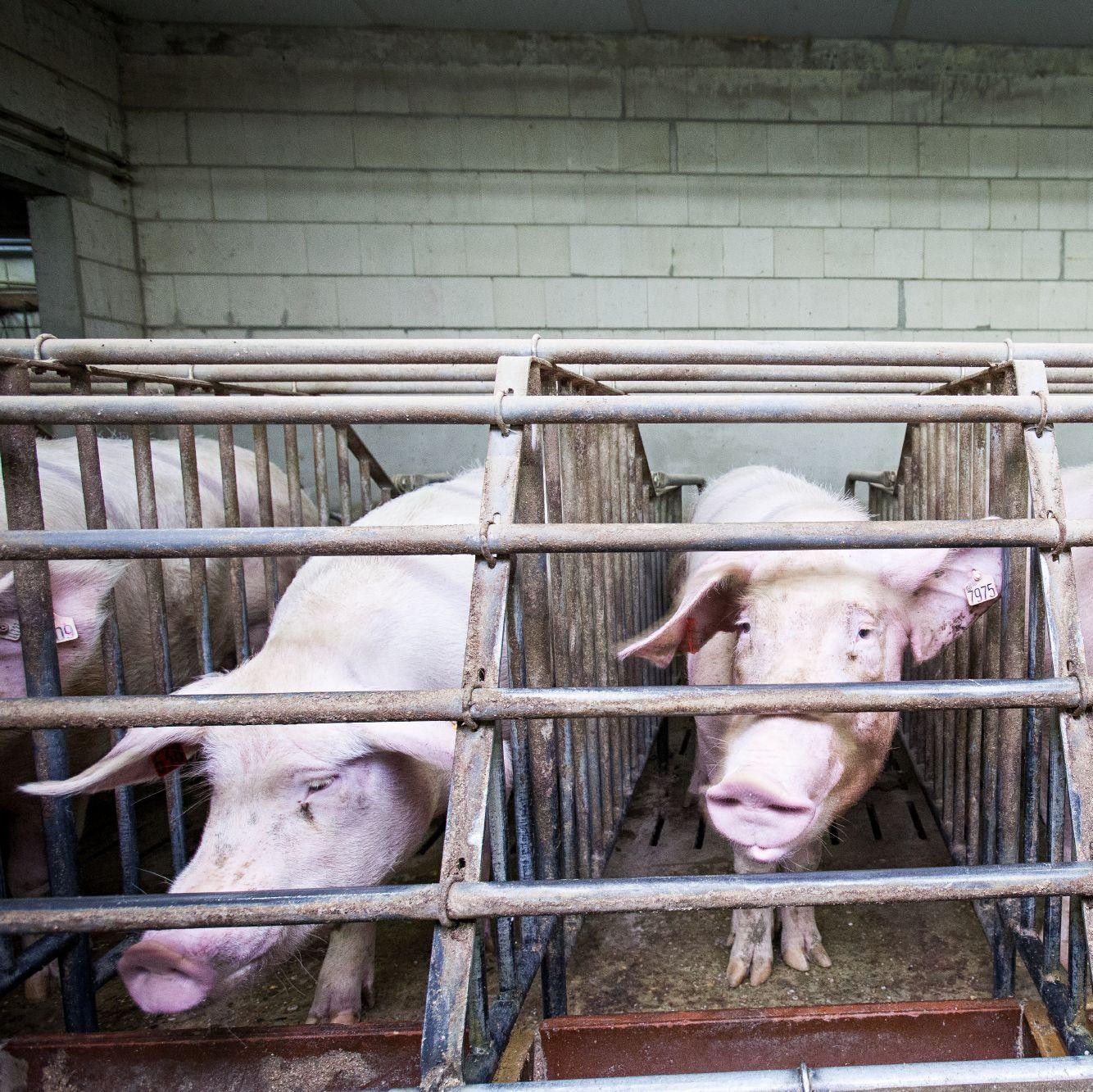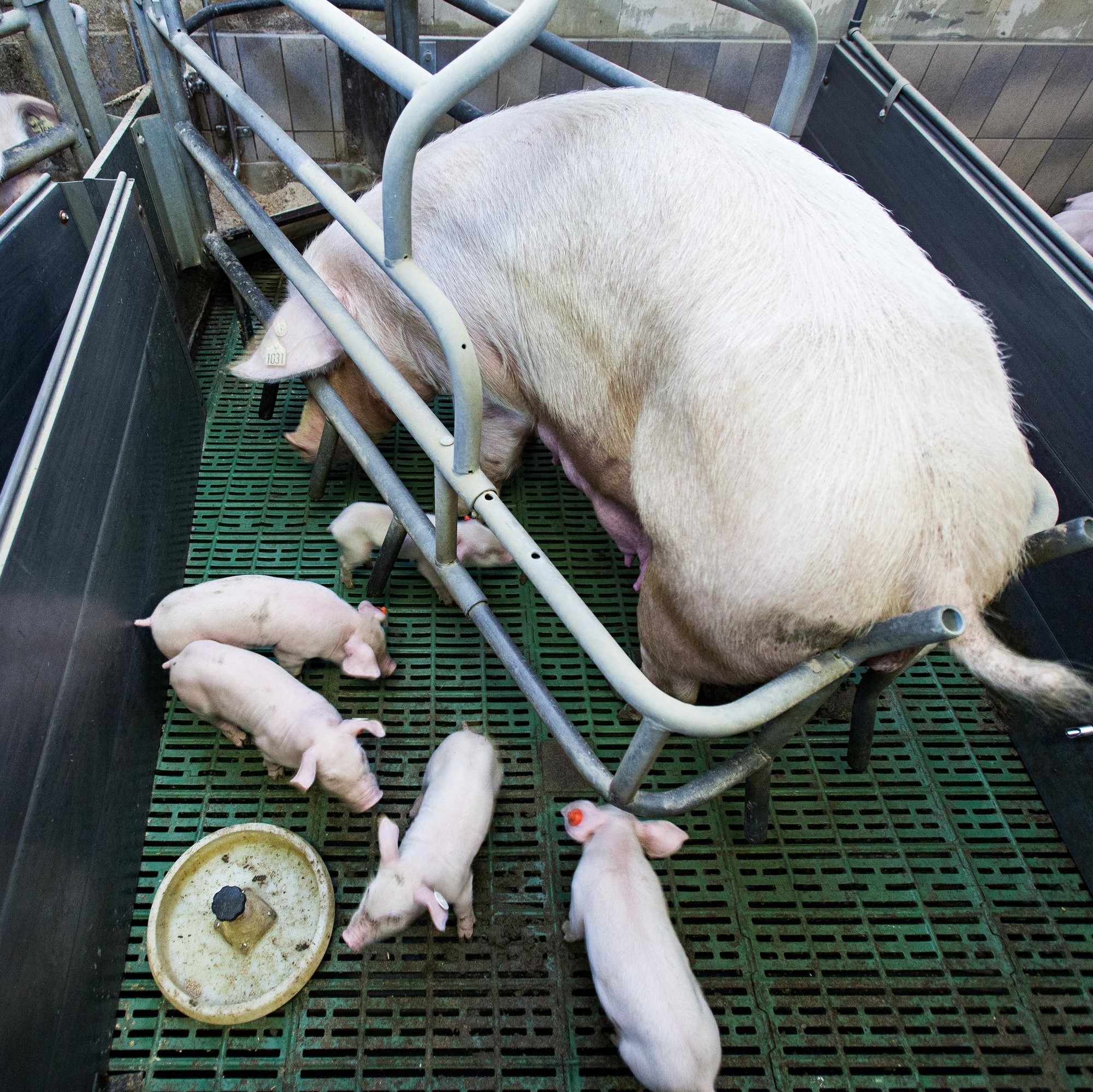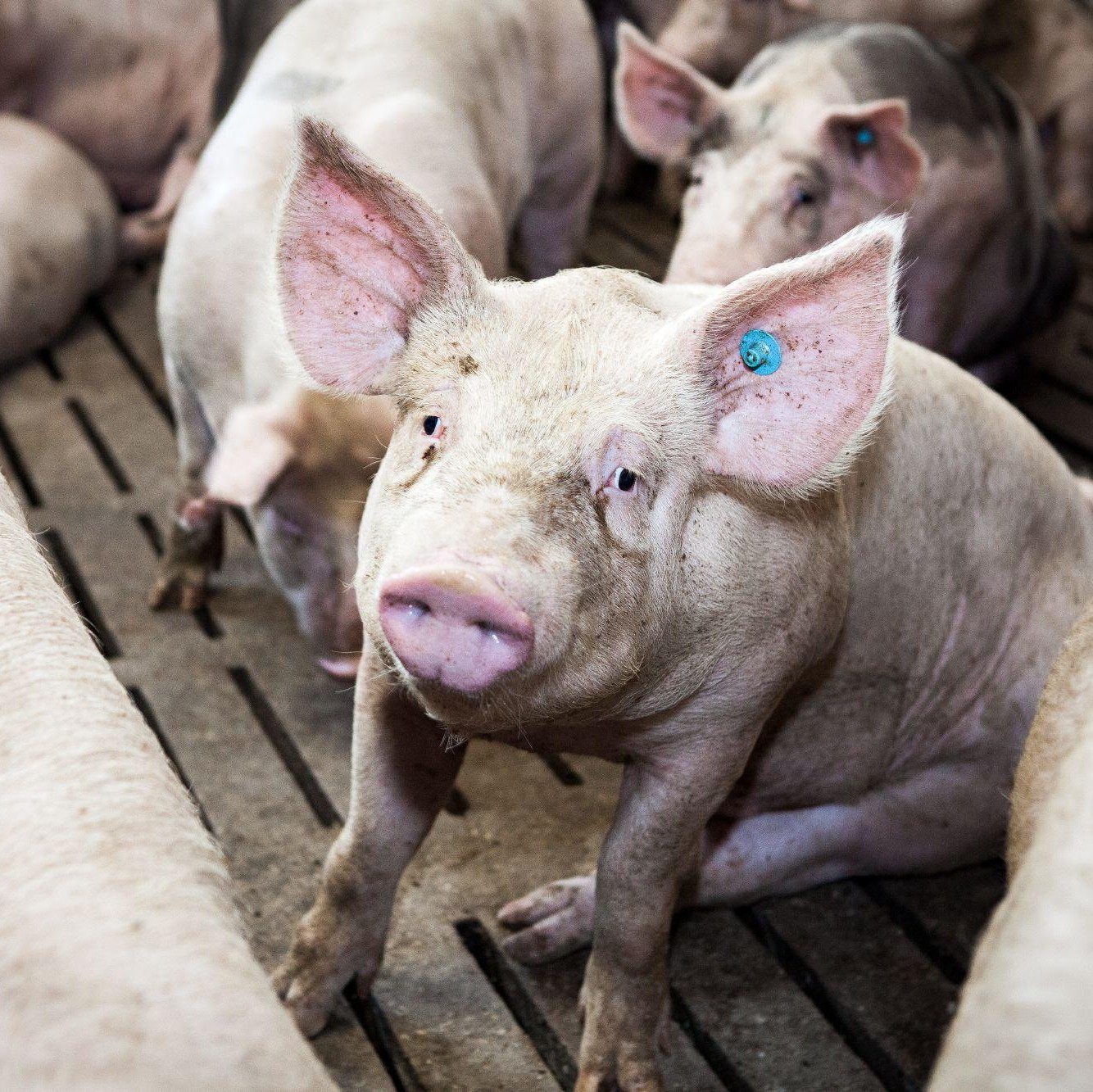
THE mutilation of pigs
Animals are forced to adapt to the farm environment, instead of building environments suited to the animal.
Intensive livestock farming does not take the natural instincts of pigs into account. The infographic provides an overview of the cruel practices on them worldwide.

Live Animal Transport
Fully Slatted Flooring
Breeding for Extreme Performance
Fixation of the Animals
Keeping Sows in Crates
Tail Docking
Castration without Anaesthisia
Slap Marking
Teeth Grinding, Teeth Clipping
Nose Ring
Ear Tagging












1
2
3
4
5
6
7
8
9









TAIL DOCKING
- Purpose: to prevent tail biting. Tail biting is a behavioural disorder in pigs triggered by intensive farming.
- A hot electrical iron (a so-called docking iron) is used to cut or burn off a piece of the tail.
castration of male animals without anaesthesia
- Purpose: to prevent the so-called 'boar taint'.
- The skin of the testicles is sliced open with a scalpel, the testicles are pressed out and cut off.
teeth clipping
- Purpose: to prevent piglets from injuring the udder of the sow or each other.
- The eye teeth are clipped using pliers.
ear tagging
- Purpose: identification
- The ears are pierced to fix ear tags.
- In Australia, farmers also perform ear notching where pliers are used to remove a small piece of the pig's ear, often without pain relief.
nose rings
Fortunately, nose ringing is not a common practice in Australia, but it is still used by farmers as a last resort.
- Purpose: to prevent rooting in free-range farming
- Using pliers, a metal ring is inserted in the upper part of the pig's snout (a pig’s snout has 5,000 times more nerve ends than a human finger tip).
FOUR PAWS demands:
- A ban on tail docking. Appropriate conditions in pig farming do not require the amputation of body parts.
- A ban on teeth clipping. Careful smoothing down may be carried out in the case of injury to the piglets or sow.
- A ban on ear notching, and the replacement of ear tags through alternative identification marks such as chips.
- A ban on nose rings. Rooting is a natural behaviour in pigs and should not be prevented by a painful nose ring.
- Whenever castration of male piglets is necessary, FOUR PAWS supports the use of immunocastration to avoid the use of physical castration.

